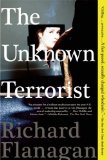Summary | Excerpt | Reviews | Beyond the Book | Readalikes | Genres & Themes | Author Bio

A Novel
by Richard FlanaganExcerpt
The Unknown Terrorist
The idea that love is not enough is a particularly
painful one. In the face of its truth, humanity has for centuries
tried to discover in itself evidence that love is the
greatest force on earth.
Jesus is an especially sad example of this unequal struggle.
The innocent heart of Jesus could never have enough of
human love. He demanded it, as Nietzsche observed, with
hardness, with madness, and had to invent hell as punishment
for those who withheld their love from him. In the end he
created a god who was “wholly love” in order to excuse the
hopelessness and failure of human love.
Jesus, who wanted love to such an extent, was clearly a
madman, and had no choice when confronted with the failure
of love but to seek his own death. In his understanding
that love was not enough, in his acceptance of the necessity
of the sacrifice of his own life to enable the future of those
around him, Jesus is history’s first, but not last, example of a
suicide bomber.
Nietzsche wrote,“I am not a man, I am dynamite”. It was the
image of a dreamer. Every day now somebody somewhere is
dynamite.They are not an image.They are the walking dead,
and so are the people who are standing round them. Reality
was never made by realists, but by dreamers like Jesus and
Nietzsche.
Nietzsche began to fear that what drove the world forward
was all that was destructive and evil about it. In his writings
he tried to reconcile himself to such a terrible world.
But one day he saw a cart horse being beaten brutally by
its driver. He rushed out and put his arms around the horse’s
neck, and would not let go. Promptly diagnosed as mad, he
was locked away in an asylum for the rest of his life.
Nietzsche had even less explanation than Jesus for love
and its various manifestations: empathy, kindness, hugging a
horse’s neck to stop it being beaten. In the end Nietzsche’s
philosophy could not even explain Nietzsche, a man who
sacrificed his life for a horse.
But then, ideas always miss the point. Chopin could offer
no explanation of his Nocturnes.Why the Doll was haunted
by Chopin’s Nocturnes is one strand of this story. In listening
to what Chopin could not explain, she heard an
explanation of her own life. She could, of course, not know
that it also foretold her own death.
SATURDAY
T
he doll was a pole dancer. She was twenty-six, though
routinely claimed, as she had been claiming since she was
seventeen, to be twenty-two. A small, dark woman, her
fine-featured face and almond eyes were set off by woolly
black hair.
“Her body, hey,” said Jodie, a fellow pole dancer to whom
the body mattered and who, at nineteen,was already a Botox
junkie, “it wasn’t like, you know, contemporary. You know what
I mean?” And everyone listening knew exactly what Jodie’s
lack of expression meant.
The young women who flooded in and out of the pole
dancing clubs were of every body type, but their bodies,
whatever their differences, shared the toning that only hour
after hour of swaying and swinging can bring and a diet of
amphetamines and alcohol can hone. They aspired to an ideal
they had seen starring in a hundred DVDs and a thousand
video clips, splashed across an inestimable number of
women’s magazine articles and gliding through a million ads.
Hard and angular, bones and muscles rippling and bumps
and products glistening, it was the ideal of beautiful women
as cadaverous children.
But the Doll’s body seemed to belong to some different,
older idea of what women were. In contrast to the muscled
butts and thighs of the other dancers in the club, the Doll’s
body was more rounded, her arms and thighs and buttocks
fuller, and her movements were somehow similarly
rounded and full.
Excerpted from The Unknown Terrorist by Richard Flanagan © 2007 by Richard Flanagan. Excerpted by permission of Grove Atlantic. All rights reserved. No part of this excerpt may be reproduced or reprinted without permission in writing from the publisher.
Don't join the book burners. Don't think you are going to conceal faults by concealing evidence that they ever ...
Click Here to find out who said this, as well as discovering other famous literary quotes!
Your guide toexceptional books
BookBrowse seeks out and recommends the best in contemporary fiction and nonfiction—books that not only engage and entertain but also deepen our understanding of ourselves and the world around us.